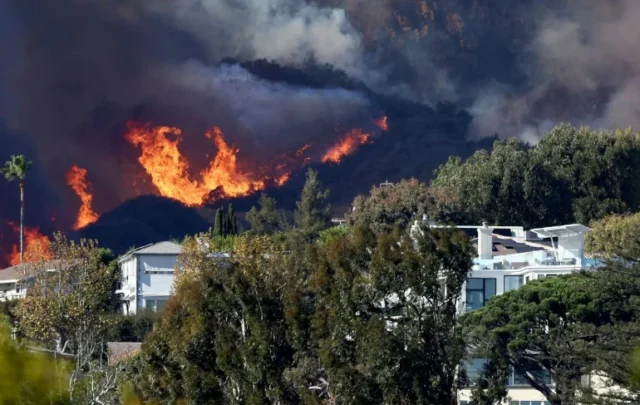Click on the headline (link) for the full text.
Many more articles are available through the Energy Bulletin homepage
White House Budget Proposal Gives Ax to Fossil Fuel Tax Breaks, Some Interior Programs
Allison Winter and Darren Samuelsohn, The New York Times
President Obama will roll out a sweeping federal budget proposal today that would eliminate subsidies for fossil fuels, invest more money in clean energy projects and cut funding for 120 federal programs, including some at the Interior Department.
The fiscal 2011 budget blueprint also includes a placeholder for revenue from a cap-and-trade climate bill — recognizing efforts in Congress to advance the legislation without assuming any of its funds would go into the general treasury.
The $3.8 trillion budget includes “tough choices” to cut some federal programs, White House communications director Dan Pfeiffer said yesterday. The budget seeks to reduce or eliminate 120 different programs for a total savings of $20 billion. The cuts would include two grant programs at the National Park Service and an abandoned mines payment program at the Interior Department.
Some of the proposed cuts repeat suggestions that Congress has rejected in previous budgets. Pfeiffer said the administration would continue to push for them this year…
(1 Feb 2010)
US Navy to halve fossil fuels by 2020
carbonpositive
The US Navy is to halve its use of fossil fuels by 2020 among a number of clean energy measures across the armed forces flagged in a major defence review paper released this week. On the way to the 2020 target, the Navy plans to deploy a “green” strike group by 2016 which will operate entirely without fossil fuels. It has already commissioned an electric-drive aircraft carrier, the USS Makin Island, and last year tested an F/A-18 fighter aircraft on a camelina-based biofuel blend.
The Quadrennial Defense Review lays out an extensive list of priorities that for the first time identifies the threats climate change and conventional energy pose for national security and the operational effectiveness of the Army, Navy, Air Force and Marines. An ambitious set of goals will see the US Department of Defense heavily involved in research and development of green fuel alternatives and energy efficiency.
The review says that “climate change will shape the operating environment, roles, and missions” the military will have to undertake, and may act as an accelerant of instability, conflict and natural disaster around the world to which it will have to respond. It acknowledges energy security as well as environmental adaptation and emissions mitigation as primary motivations for the switch to cleaner fuels and practices.
(2 Feb 2010)
Oil, trucking interests sue over 2011 fuel law
Wyatt Buchanan, sfgate
A coalition of oil companies, the trucking industry and others have filed a lawsuit in federal court in an attempt to block the implementation of a first-in-the-world limit on the amount of carbon allowed in fuel approved by California regulators last year.
The suit, filed in federal court in Fresno, seeks an injunction to stop the implementation of the regulation, which is set to take effect next year. The so-called low-carbon fuel standard requires fuel manufacturers to cut the carbon intensity of fuels sold in the state 10 percent by 2020 – lowering the amount of greenhouse gases released for every unit of energy produced.
If the regulation’s goal is reached, it will account for 10 percent of the state’s overall goal for reducing greenhouse gases by 2020.
The suit claims that the standard violates the commerce clause of the U.S. Constitution in several ways, including interfering with interstate commerce and discriminating against fuels produced outside of California. The standard has been controversial, especially among ethanol producers, because it accounts for the indirect carbon impact of making fuel.
In other words, for corn ethanol producers, that means accounting for the loss of land that is converted to grow corn for fuel instead of food or other changes in habitat to grow corn.
(3 Feb 2010)





